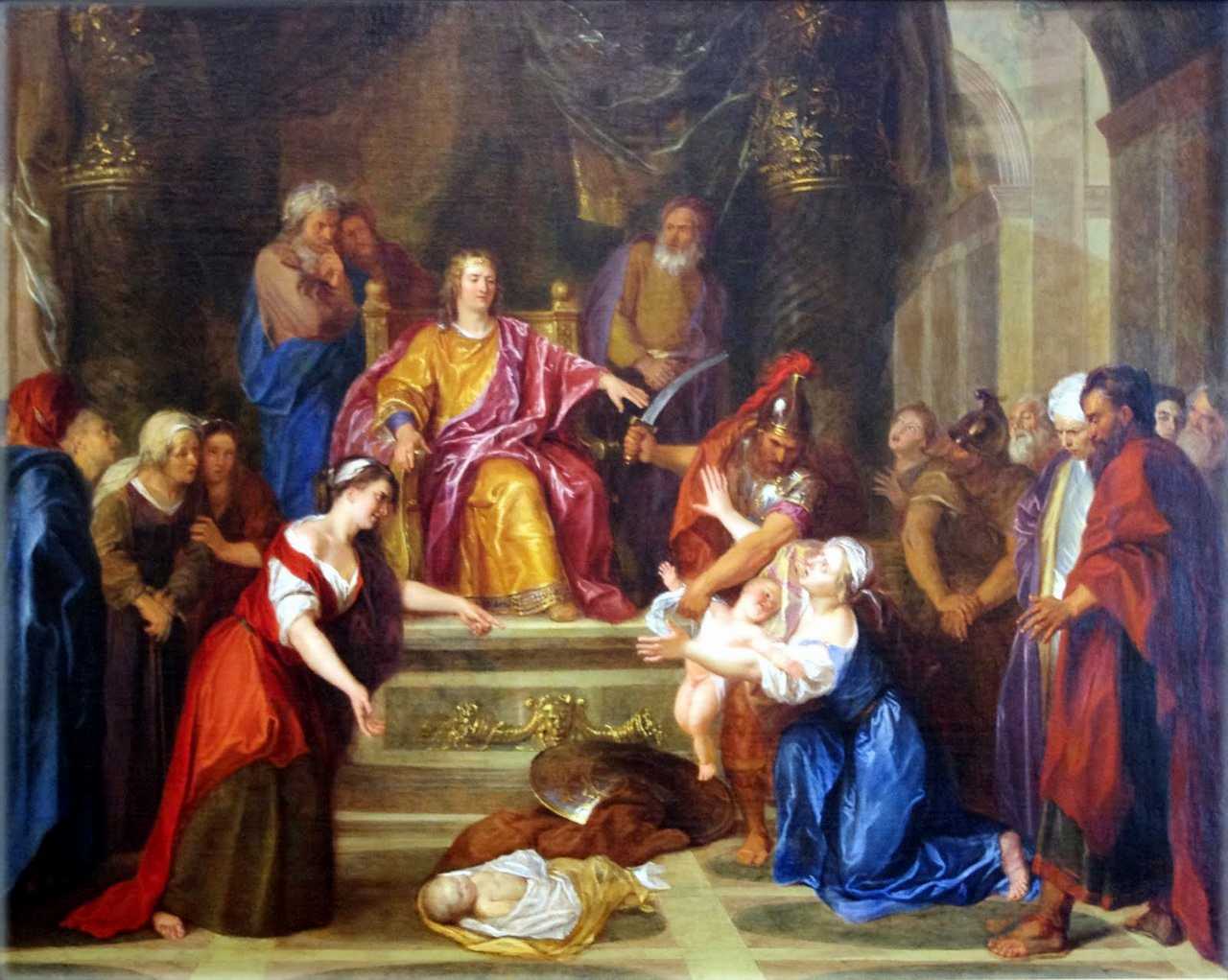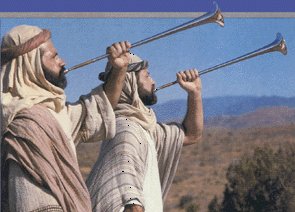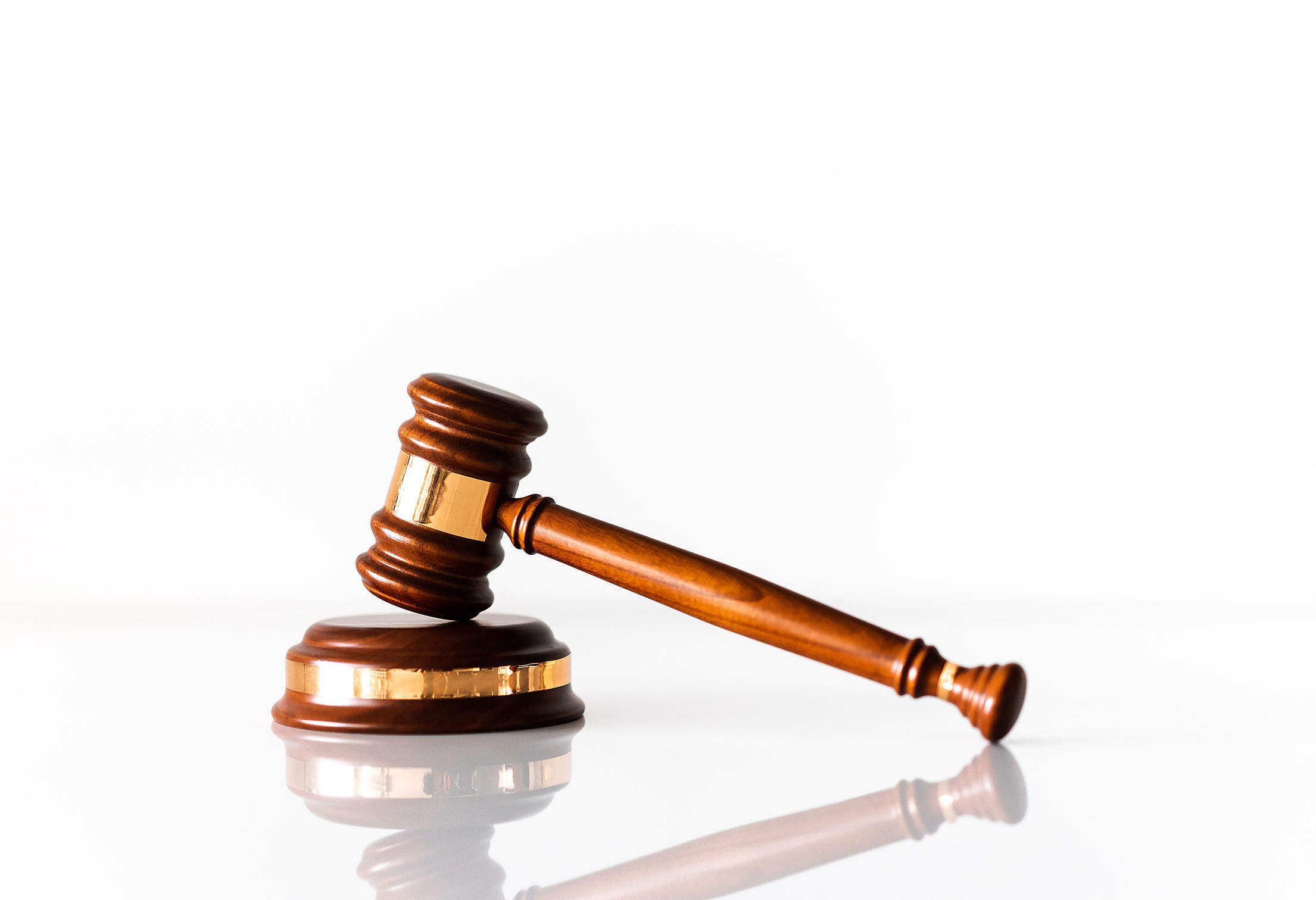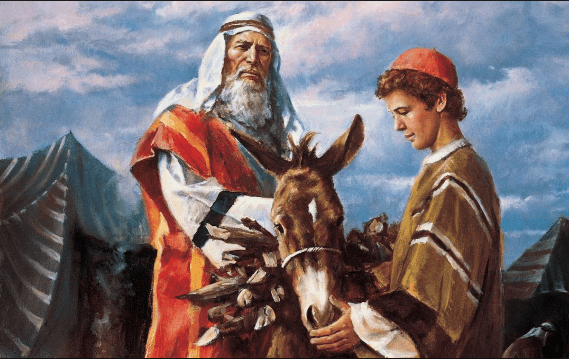Sunday, October 23, 2022
Who Are The Chosen People?
Sunday, September 4, 2022
Proverbs: Knowledge and Wisdom
And God said unto him, Because thou hast asked this thing, and hast not asked for thyself long life; neither hast asked riches for thyself, nor hast asked the life of thine enemies; but hast asked for thyself understanding to discern judgment; Behold, I have done according to thy words: lo, I have given thee a wise and an understanding heart; so that there was none like thee before thee, neither after thee shall any arise like unto thee.
Wisdom is the principal thing; therefore get wisdom: and with all thy getting get understanding. (Proverbs 4:7)
Reprove not a scorner, lest he hate thee: rebuke a wise man, and he will love thee. Give instruction to a wise man, and he will be yet wiser: teach a just man, and he will increase in learning. (Proverbs 9:8-9)
Happy is the man that findeth wisdom, and the man that getteth understanding. For the merchandise of it is better than the merchandise of silver, and the gain thereof than fine gold. She is more precious than rubies: and all the things thou canst desire are not to be compared unto her. (Proverbs 3:13-15)
Sunday, August 21, 2022
Visiting the Psalms
I will ... sing praise to the Lord most high. (Ps. 7:17)
Praise the Lord with harp: sing unto him with the psaltery and an instrument of ten strings. Sing unto him a new song; play skilfully with a loud noise. (Ps. 33:2-3)
Sing aloud unto God our strength: make a joyful noise unto the God of Jacob. Take a psalm, and bring hither the timbrel, the pleasant harp with the psaltery. Blow up the trumpet in the new moon, in the time appointed, on our solemn feast day. (Ps. 81:1-3)
Make a joyful noise unto the Lord, all the earth: make a loud noise, and rejoice, and sing praise. Sing unto the Lord with the harp; with the harp, and the voice of a psalm. With trumpets and sound of cornet make a joyful noise before the Lord, the King. (Ps. 98:4-6)
Praise ye him, all his angels: praise ye him, all his hosts. (Ps. 148:2)
Sunday, July 24, 2022
The Old Testament and Apostasy
Monday, July 18, 2022
The Adventures of Elder Elder and Elder Benjamin: The Cake and Gidgiddoni
The Cake and Gidgiddoni
March 14, 1990
It was our turn to bring refreshments to the district meeting, and our new sister, the greenie Sister Young, was in for a surprise: Elder Benjamin’s infamous Kool-Aid cake.
It’s exactly what you may imagine — a simple white cake with Kool-Aid mixed in — nothing much for most to be excited about, but you have to understand. In Korea, at the beginning of the 90’s, American food was scarce. Don’t get me wrong. I loved Korean food, but over there it was just “food.” We got to eat it all the time. Kimchi everyday.
So, it was easy to miss good old-fashioned American food. Pizza, hamburgers, tacos, and so on. There were indeed a couple of McDonald’s here and there, but it was very expensive, and also not quite the same. Some places sold pizza, but it was only imitation — often topped with seafood. Once in Pusan, we found an actual Dairy Queen, and we splurged. Man — that was fun!
And believe it or not — SPAM tasted good, especially mixed with eggs.
Anyway, you get the picture. Kool-Aid cake was one of those delicacies, and this time, Elder Benjamin was going to apply a secret ingredient, and he didn’t want to tell me what it was.
“Come on, Elder Benjamin. I won’t tell anyone. What are you going to use this time?”
“You’ll see. It goes in last — in the icing. But you can’t see until after our meeting.”
I helped him with the rest of the cake: eggs, flour, baking powder, baking soda, water, oil, butter, sugar, and the most important ingredient: 7/8ths packet of unsweetened Kool-Aid mix. Once I asked him: why not poor in the whole packet and he had answered that it would ruin the whole cake. “What do you do with the rest?” I had asked, and he answered, “Whatever you want.”
We did all of this during our morning preparation time, which was usually set aside for scripture study, Korean practice, doctrine studies, etc. The weekly district meeting was scheduled first thing at the church — at 11AM.
When time came to add in the secret ingredient, Elder Benjamin kicked me out of the kitchen area, which was a small nook in our big living area. So, being kicked out pretty much meant going back into our room.
Elders Johnston and Riley were minding their business, studying in their own room, totally oblivious to the cake preparations and the secret ingredient — whatever it was.
And then Elder Benjamin said, “You can come back out now.” He had placed the cake in a largish plastic bag and had tied it up so no one could see it, except for the green color through the translucent plastic.
And I heard a noise. Click — pop — click — click.
“Um?” I said. “Do you hear something?”
Elder Benjamin maintained a straight face. “I hear a lot of sounds. The egg vendor outside. The garbage ice-cream truck. Elder Johnston talking to Elder Riley. Which sound do you mean?”
And there it was again. Click … click … … pop. Little tiny random sounds — kind of slow. It was coming from the cake? I stared at it and got closer.
“Elder Benjamin?”
He barely suppressed a laugh.
“Did you put pop rocks in the icing?”
And then he lost it — kind of. A high-pitched giggle that he was clearly trying to hold in. I couldn’t help it, so I joined in, too. Only I wasn’t so diligent in hiding my laughter.
“Shh,” he whispered. “You can’t tell anyone. … HA! … It’s a surprise.”
It was hard to talk while laughing. “But … won’t they hear … the cake?” That only made him laugh louder.
“Not … if we … distract them.”
Behind us, Elder Johnston said, “What are you two up to this time?”
Dang — we were busted. I couldn’t stop laughing, but Elder Benjamin said, “Elder Elder just told the funniest joke!”
Elder Johnston looked at me, and then at Elder Benjamin.
Elder Riley shrugged his shoulders. “What else is new?” he said.
“Well,” said Elder Johnston, “are you ready to go to the district meeting?”
“You could say that,” Elder Benjamin said, and I laughed.
“All right. Let’s go.”
Elder Benjamin picked up the cake on the way out. Every now and then, it would go click … pop, but the other two elders remained oblivious.
The church was in walking distance — perhaps three-fourths of a mile. We could ride the bus if we wanted to, but the walk to the bus stop was a little out of the way and didn’t really save much time. The one thing we didn’t do in Taegu was riding bikes. We didn’t even own any. The bus system was just that good in Korea (as long as you didn’t go too far out into the boonies).
Today, as often happened, a group of kids — around 8 years old — surrounded us, saying “Mee-gook Sa-lam!” This meant “Americans.” They loved us because we were different — something novel, and we always played it up. Sometimes we spoke in Korean, which they loved, and sometimes in English, which they loved even more.
Elder Johnston liked to tell them jokes — sometimes the same ones over and over.
One of the kids saw the cake, and asked, “What’s in the bag?”
“Oh, you don’t want that,” said Elder Riley. “It’s filled with salt. Yuck!”
Part of me wondered what they would think of kool-aid cake covered in pop rocks. Would they appreciate it, or would they spit it out? Either way, the kids paid it no more mind, and started running off — it was school time.
The good part was that it was too loud outside to hear any of the pop rocks snapping.
The sister missionaries were inside the church when we got there, so the doors were already unlocked. We went to the designated room, and Elder Benjamin placed the cake in the back, leaving it in its bag. It would be unveiled in about 45 minutes after the meeting.
“Hello, Elders,” said Sister King. “I’d like for you to meet my new companion, Sister Young. Fresh from the states.”
“Hey,” we all said.
Sister King continued, “This is Elder Johnston, Elder Riley (who’s also new), Elder Benjamin, and Elder Elder.”
“Elder Elder?” asked Sister Young.
I said, “Yeah — you know. Like in, Elder Elder Elder Elder Elder …”
She just stared at me while Elder Benjamin laughed.
“All right,” said Elder Johnston. “Let’s get this meeting started. We have an appointment at 1PM, and I want to catch lunch before we go.”
We all sat down around the table, small enough to seat only the six of us. Elder Benjamin took the one seat closest to the cake.
“Okay,” said Elder Johnston. “Let’s sing ‘Called to Serve.’ And then Sister Young, would you mind saying the opening prayer?”
We then sang with gusto, without piano, as always. I could play, of course, but pianos were scarce in the building — only one in the gym, which also served as the chapel.
Called to serve Him, heavenly King of glory …
My personal favorite. We sang it in Korean — always by memory.
When the hymn ended, Sister Young waited for the room to get quiet for the prayer, and then came a couple of snaps. After a long pause, Sister Young said, “I’m sorry. Do you hear something? I could have sworn I heard something.”
Elder Benjamin choked a laugh, and so did I. Then complete silence as everyone tried to listen.
“I don’t think so,” said Elder Johnston.
“Okay,” said Sister Young. “I guess I’ll say the prayer now.”
As she said the prayer, I heard another snap followed by an almost silent giggle from Elder Benjamin, and then another snap started me giggling as well.
After the prayer, Sister King said, “Elder Benjamin, are you up to something again?”
He tried to look serious, but it was a lost cause. “Would I be doing something? Elder Elder told me a joke today, and I can’t stop thinking about it.”
Snap!
Everyone turned toward the cake, and before we knew it, we were all giggling.
But then the meeting had to go on. The cake had to wait, so everyone did their best to ignore it.
We reviewed upcoming activities, including a big move for the Elders in the coming weeks. We went over all the baptisms scheduled for the upcoming weekend — five were planned, though one was iffy. We read snippets from the Missionary Handbook, and Elder Riley gave the spiritual thought. Then after a closing prayer, the time had come to eat the cake.
Elder Benjamin grabbed the bag, took out the cake, and placed it in the middle of our table. There it sat in its full glory. One layer — a red-dyed yellow cake with green icing on top with lots of loud sprinkles. Snap — click — click — snap!
It was definitely louder out of its bag.
Sister Young asked, “Is that pop rocks?”
“It’s kool-aid cake with pop rocks!” said Elder Benjamin, as proud as ever.
Elder Riley said, “You’re in for a treat.”
And Sister Young said, “I think I’m going to like it here.”
***
Later that evening, we four elders ended up back at the church building. It started with a new member discussion, and then turned into games of ping pong down in the basement. Kong Soong taught us moves.
He showed me a serve — you hold the paddle nearly horizontal, throw the ball up and when it comes back down, you flick the paddle severely to the left or to the right, which puts a crazy spin on the ball. In that one night, I had mastered it to a degree. My serve would lob high in the air, and as my opponent got ready to return it, the ball would shoot off way to the left or right, leading to confusion and a point.
Later, I would learn that any professional ping pong player would have no trouble anticipating which way the ball would go and would school me with my high lobs. But Kong Soong was the biggest expert in the room. We American missionaries were mere novices. So, my spinning lobs worked fine against them.
At 8:30PM, Kong Soong left us, as he had hakgyo the next morning. But we elders kept going. Knowing that curfew was at 9:30PM, and we had already enjoyed a successful week, we decided to blow off some steam.
And we were getting into it. At one point, I served and the ball hit right inside the line. Or at least I was sure it was inside, but Elder Riley said, “That was out.”
“No it wasn’t,” I said.
Elder Johnston said, “It was out. Our point.”
“Hey. It was in, and you know it!”
Elder Benjamin, my teammate put his hand on my shoulder and said, “It looked out to me.”
“What?” I said. “All three of you think it was out?”
Elder Johnston said, “We were closer to the ball, and it was clearly out. Our point.”
“I can’t believe this! I know what I saw!” I slammed my paddle down and exited up the stairs.
Elder Benjamin followed closely behind, as we had a rule that no missionary could be left alone at any time. I knew this, so I knew Elder Benjamin had no choice but to follow.
In the hallway, he wasted no time trying to talk me down. “Hey, Elder Elder. Why are you so angry?”
“They’re cheating! How can we beat them like this?”
“It’s just a game,” he said. “We’re having fun. That’s all. Does it really matter?”
“Aren’t we supposed to be honest?”
“How about we go back down and finish the game? We can redo the point.”
But it was too late. Elders Johnston and Riley had emerged from the stairs. “Well,” said Elder Johnston. “It’s already 9PM. We better head back home.”
“Yeah. It was fun,” said Elder Riley. I noticed a hint of sarcasm, so I decided it was best for me not to answer.
The two elders walked to the front doors, and on their way out, Elder Johnston said, “Last ones out get to lock up the church.”
Dang! They did it again! We made a quick dash to the front door, but it was too late. They were already through the door, and that made it our turn to lock up.
“That’s how they’re getting back at me,” I said. “They planned this. You saw how fast they left?”
“Doesn’t matter, because we’re going to show them.”
“What are you thinking?”
Elder Benjamin smiled as big as the Grinch. “You’re thinking it, too. Right?”
“We’re going pull a prank on them? What — tonight?”
As Elder Benjamin locked the back door, he said, “You know the story of Gidgiddoni, right?”
“Gidgi - who?”
We started walking back to the front door. “You know — in the Book of Mormon? When Zemnarihah, the Gadianton Robber, was attacking the Nephites?”
I laughed. “How do you remember all these names?”
“Well, Zemnarihah tried to sneak away and attack the northern lands. So, Gidgiddoni made his armies march in the middle of the night so they could get in front of Zemnarihah and destroy his armies.”
“Wait. You think we can beat the elders home? They already have a headstart. There’s no way to get past them without them seeing us.”
“Oh, there’s a way.” Again, his Grinch smile grew. “We could … run through the market.”
“In the evening? That’s crazy.”
“And that’s exactly why we’re going to do it. We’ll come up to our apartment from the east, while they approach from the west. As long as they don’t suspect anything, they’ll go slow. Elder Riley will slow them down with his Southern talking. So, what do you think? Should we do this?”
As a missionary, I knew there was only one correct answer. “You betcha!”
We quickly locked the front door and started running, laughing all the way.
Even a little after 9PM, the markets were still a little crowded. Some had already closed up shop, which worked in our favor. As we dodged people left and right, we had several tell us: “Chae-shim-he-o!” and “Ha-ji-ma!” Warning us not to run so fast.
But we were young and very capable of weaving in and out. Well — almost. I just barely clipped a gum display and sent it crashing over. I yelled back: “Mi-an-hae-yo!” We were on a mission and couldn’t delay, so we ran faster.
Once we got to the cut-through street, we went south and left the market. That’s when we really booked it — still laughing the whole way.
“I can’t believe we’re actually doing this!” I yelled.
Elder Benjamin, in front of me, yelled back, “We’re doing it! We’re Gidgiddoni!! Look — I see them!”
We were on the higher ground, so we could look down and see Elders Johnston and Riley taking the usual way home, and sure enough Elder Riley was talking his head off, and they were walking slowly. We were still behind them, but quickly catching up.
“Hey, Elder Benjamin. If they look up here, won’t they see us?” I tried to yell quietly.
“Nah! They’d have to look up at us, and we’re in the dark. And too many trees. I think we’re going to make it. We gotta hurry!!”
As we passed them, knowing we still hadn’t been seen, I couldn’t help but laugh even harder. “Dude! This is going to be so close. We can’t let them see us until they open the apartment door.” We pushed even harder.
We made it to the eastern stairwell and went up as fast as we could, making a terrible racket. If the others were anywhere near, they’d most definitely hear us. As we exited to the third floor, we saw nobody at all. It was going to work!!
“Hurry!” said Elder Benjamin.
As he fiddled with the keys, it was my turn to whisper, “Hurry! I hear someone coming up the other stairs!”
The door opened and we went in quickly, trying not to slam the door behind us.
“Quick!” said Elder Benjamin. “Lock it! Leave the lights off! We’re going to destroy them when they open the door.”
I locked it, and then we stood in the dark … waiting not for long. Sure enough, Elder Riley was telling some story to Elder Johnston. They had no idea what was about to happen.
The door opened, and we jumped and yelled.
“SURPRISE!” That was me.
“RAWRRR!” Yeah, that was Elder Benjamin.
“What the heck!” Elder Riley.
“Crap!” And the last — Elder Johnston.
They dropped their kabangs and backed up suddenly, but then they seemed to recognize our voices. “Elders?” said Elder Johnston. “How in the world did you get here?”
Elder Benjamin and I couldn’t help but laugh, buckling over until it hurt.
Elder Riley said, “Jerks,” as they picked up their kabangs, and came inside. They walked past us. “I can’t believe you guys.”
As we gathered in the living area, Elder Johnston smiled at us. “Okay. You have to tell us how you did it.”
Elder Benjamin smiled largely. “We ran.” And then we both laughed hard. We could tell they didn’t believe us, but we were telling the truth!
“Stop lying,” said Elder Riley, shaking his head. “We would have seen you. And we’re not that slow.”
“I think they took a taxi — we saw one drive past,” said Elder Johnston. “I think there were two people in the back seat.”
We laughed again.
“Fine. Don’t tell us.”
But we did tell them! To this day, they still don’t know how we did it — unless of course they read this story. Perhaps you shouldn’t let them read this. It’ll be our secret.
That night as Elder Benjamin and I tried to sleep in our yo’s, we kept on laughing softly, though not so soft that Elder Johnston once yelled at us to go to sleep from their own room.
A popping cake and Gidgiddoni destroying the Robbers? How in the world could we get any sleep that night?
Sunday, May 29, 2022
Modern-day Laws of Moses
Last week, I wrote about the Law of Moses and how it relates to the Higher Law that was later introduced by Jesus. As a follow-up, this week I'd like to analyze a modern-day "Law of Moses," which lends itself to great discussion.
Sunday, May 22, 2022
The Law Of Moses vs. the Higher Law
Today's spiritual thought is an important one. Currently, our Old Testament reading is concentrating on the Law of Moses itself, and my church teaches an interesting concept.
Sunday, May 1, 2022
Would You Be Found Guilty of Being a Christian?
As I vacationed across the states, I attended a ward in St. George, Utah, and enjoyed a very interesting priesthood meeting session. The main gist of their message stemmed from this popular quote:
If you were accused of being a Christian, would there be enough evidence to convict you?
And I saw the dead, small and great, stand before God; and the books were opened: and another book was opened, which is the book of life: and the dead were judged out of those things which were written in the books, according to their works. (Revelation 20:12)
Thursday, April 7, 2022
Saints: Volume 1
Sunday, March 13, 2022
The Families of Abraham
- The Old Testament can be surprisingly R-rated. People sleeping with each other, killing, cheating, and the like.
- The Bible says: "thou ... shalt call his name Ishmael." (Genesis 16:11) So, where's Ahab?
- At least twice, Abram and Sariah plan to say that she's his sister so that the people don't kill Abram and take her away. Both times, some kind of king takes Sariah, and then in a vision they learn that she is married and God threatens to curse them. And they return Sariah and ask, "Why did you say that she's your sister?" In the second story, there's a plot twist -- turns out Sariah really *IS* his sister -- from another mother. So, cool.
- Evidently -- after Sarah dies, Abraham marries again and has more children.
- Isaac ends up marrying his cousin, Rebekah. In a few generations, the idea of Levitical degrees will be introduced. But it seems that at this point in time, this type of thing is permitted.
- Laban, the father of Rachel, is a jerk. He probably would have kept Jacob as a "slave" forever. At least Jacob got two wives out of it.
- After twenty years, Jacob feared when he heard that Esau, his brother, was on the way to meet him. Turns out that he just wanted to say hi, and there were no more hard feelings.
- Judah is such an interesting person.













